| Clutching My Pearls is my ongoing blog series about my take on Jane Austen’s beliefs and ideas, as based on her novels. I’ve also been blogging about now-obscure female authors of the long 18th century. For more, click "Authoresses" on the menu at right. Click here for the first in the series. |
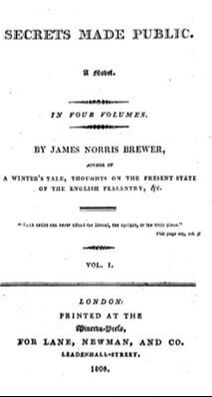
How about looking at an 1812 novel which actually has an enslaved person as the titular character? Yamboo's anti-slavery message is far more explicit than Mansfield Park and serves as yet another refutation of the notion that authors, particularly women authors, couldn't talk about slavery back then.
Leaving aside the literary merits of the book and focusing on its message, we can say this in favour of Yamboo:
- The novel strongly asserts the titular character’s humanity.
- It confronts the issues of racial as well as class prejudice.
- Yamboo is portrayed as having agency; that is, he acts and is not merely acted upon...
- The name "Yamboo." Well, according to scholar Kenneth E. Marshall, the name Yamboo “has been identified among the Mende, Bobangi, and Hausa peoples.”
- Yamboo consistently refers to himself in the third person and speaks pidgin English, despite living with English-speaking people all his life. At least he speaks, which is more than we can say of Miss Lambe of Sanditon, and look at how much ink has been spilled in speculation about her.
- He definitely is in the mold of the “grateful negro” and the “noble savage;” that is, he is supernaturally virtuous and exceedingly grateful. His virtuous character is presumably essential to the argument that he is worthy of humane treatment.
- The novel is told from a Christian viewpoint with a heavy emphasis on conversion and salvation. Yamboo is a child of god who accepts Christianity. As I've mentioned elsewhere, if Jane Austen had evangelical tendencies, that likely means she was in favour of converting heathens like Yamboo.
I can’t find one scholarly discussion of this novel, which makes me question just how sincere scholars even are about the whole “interrogating the past through literature” kick. Why such neglect? And the poor novel never received a review when it came out in 1812, either. Time to rectify this oversight!
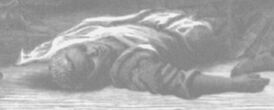
Mrs. Beresford and her two little daughters, living in the English colony of New Brunswick, find young Yamboo weeping, “stretched on the damp earth. His tattered clothes too plainly bespoke him the child of poverty; the situation left little room to doubt of his being friendless… He was one of those unfortunate beings, brought into the world only to be stigmatized with the opprobrious epithet [bastard]…. He knew no father; and the wretched mother to whom he owed his being, careless of a mother’s rights, willingly resigned [him to slavery because] she was too idle to work, too proud to beg.”
Nor was this the least of his misfortunes: “Nature had fixed on him an indelible mark; she had given him a heart, that, if known, might have ranked him with the fairest of her sons; but, alas! That heart was enshrined in an ebon casket, and shewed not, in the dark lineaments of his fine features, the workings of a generous and noble mind.” The author goes on to describe Yamboo as being “superior” to his slave-master “save in colour,” because he is superior in natural goodness.
During this time, New Brunswick was part of British North America, sending timber, beaver pelts, and cod back to England, and slavery was legal and there was also a small population of free Blacks.
Yamboo has run away from his master, and “the mother who had abandoned him was now dead,” and only a kindly Indian (that is, a native,) had given him a little food, for “to the houseless child of misery, who will open the door? Again, he was black, and who believes a negro’s story?”
Mrs. Beresford takes Yamboo home. The scars on his back bear testimony to the hardship of his life, but her husband, Colonel Beresford, wants to test Yamboo’s veracity before offering to buy him from his old master. He doesn’t want to take a dishonest servant into his house. This is similar to the story of Pompey in the children’s story, The Rotchfords.
Fortunately, it turns out that the cruel master is dead and the Beresfords resolve to keep Yamboo as a servant. He is doggedly grateful, and begs to never be sent away: “Yamboo no longer a slave! Then what him be, if masser no obliged to keep him? Perhaps get angry, bid him go away, and young misses never beg so hard again for Yamboo; lady, all, all get tired of black boy.”
In addition to his gratitude and devotion, the author emphasizes Yamboo’s innate goodness: “From an infant, he had witnessed every enormity of which drunkenness is capable, in the wretch he called master—had been accustomed to hear only blasphemy issue from lips that knew not how to pray; of religion... Yet the heart thus cast off by every natural tie, bereft of every incitement to virtue, reared, educated but in vice, was incapable of performing a base or unworthy action, detested a falsehood, uttered no expression offensive to the chastest ear, was grateful, feeling, and humane….”
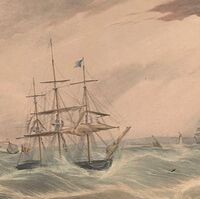
Upon returning to England, Yamboo almost drowns when he rushes into the ocean to save another servant who had gone sea-bathing. They are both rescued by the family’s Newfoundland dog. But Yamboo’s carelessness in changing out of his wet clothes leads to unfortunate consequences; he catches a fever (as one does) and nearly dies.
As he recovers, Mrs. Beresford tutors him in the doctrines of Christianity, “impressing upon his hitherto untaught mind the sacred truths which illumined her own.”
He “willingly received all that his limited capacity allowed him to comprehend; the veil of ignorance, which had hitherto obscured it, was cautiously withdrawn by his benevolent friend… she taught him also carefully to avoid those violent extremes, which too often, in illiterate minds, amount to absurdities, by the external professions they deem laudable convictions of their conversion to Christianity; hence Yamboo was the humble trusting believer, silently adoring the Power, whose gracious works he now delighted to trace in all around him…”
Colonel Beresford is sent to India and Yamboo insists on going along; As he explains, he is doing it for the colonel's wife and daughters. Mrs. Beresford "love nothing so well as him colonel, and now him going far off. Yamboo must go take care of him, bring him safe back.”
I believe the time period must be the Third Anglo-Mysore War, 1790-1792, because the author mentions Tippo [aka Tipu] Sultan, who was not killed by the British until the Fourth Anglo-Mysore War.
So, off they go to India to fight Tippoo [aka Tipu] Sultan...
Or, we could go on enthusing about how Jane Austen named her book after Lord Mansfield, even though this is nothing more than a supposition. If you want a book with a little more meat on the bones, try Yamboo...
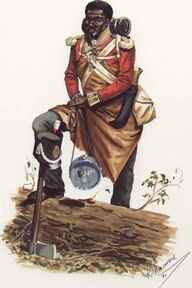 Soldier of the New Brunswick Fencibles (later the 104th)
Soldier of the New Brunswick Fencibles (later the 104th) The author of Yamboo was a wife and mother who lived in the province of New Brunswick from at least as early as 1810. It seems probable her husband was in the military, and that she was an Englishwoman.
Communication must have been very slow and difficult between Minerva Press, the publisher in London, and a Canadian author. I gather that mail delivery was suspended during the winter.
Our anonymous author's first novel, Bravo of Bohemia (1806), involves a castle and a nobleman with a mysterious and tragic past. Yamboo is her second novel, and her third, Jessy, or the Rose of Donald's Cottage, 1818, is about a foundling whose father is enslaved by the Barbary pirates. Although Bravo of Bohemia received no reviews, it must have sold well enough for Minerva to publish a second and third novel, which also received no reviews. But we must remember that Minerva was the pulp fiction publisher of the time, and their productions were often beneath the notice of the usual reviewers.
The author always dedicated her works to a high-ranking patron; for example, her third novel is dedicated to Lady Sherbrooke, whose husband Sir John was the governor of Nova Scotia.
Authors of this era often used their dedication or foreword to explain that their only motive in writing the novel was to espouse the cause of virtue and condemn vice. In her third novel, the author defends her work from the criticism that it is merely “the trifling production of hours which a wife and mother might have appropriated to more useful purposes.” Her intention. she said, was to write moral tales suitable for her children to read. Authors of this stamp even avoided the word "novel," since novel-reading was condemned as at best a waste of time. I believe that is why authors often described their books as "a tale," rather than "a novel."
| Marshall, Kenneth E. “Ain't no account”: Issues of manhood and resistance among eighteenth-century slaves in nineteenth-century literature pertaining to Central New Jersey. Michigan State University, Thesis, 2003. |
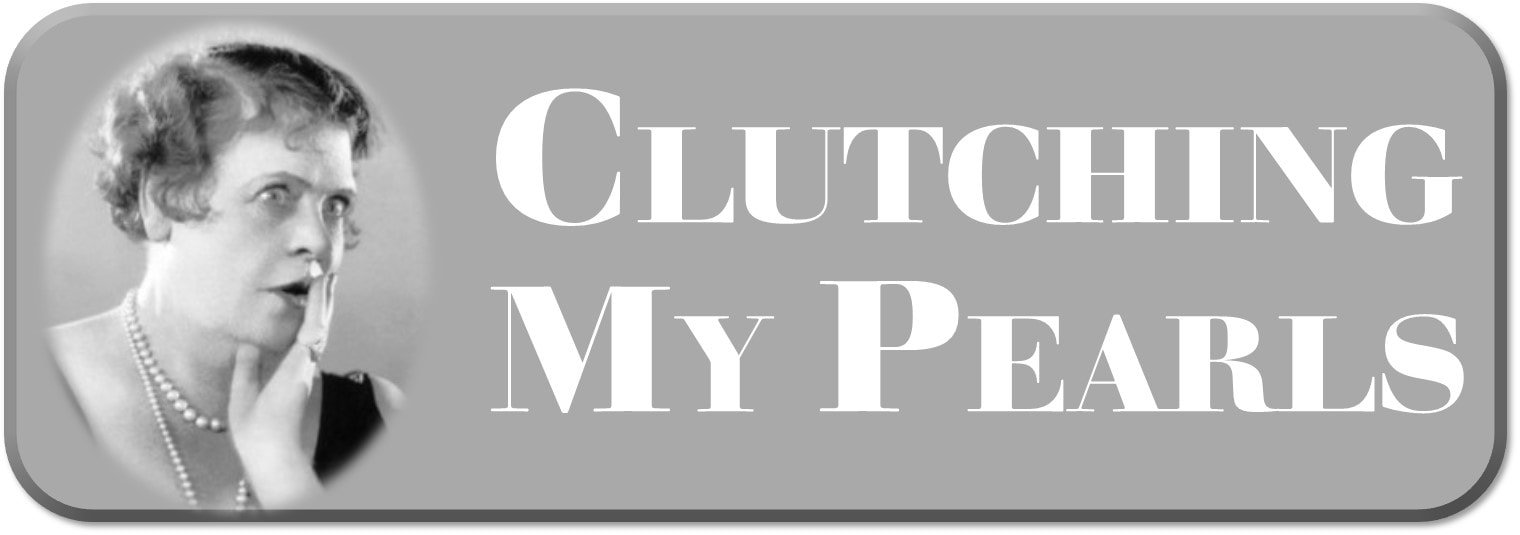
 RSS Feed
RSS Feed